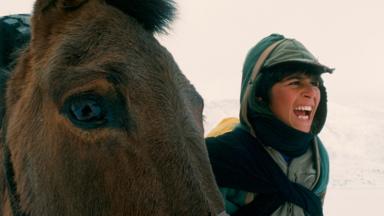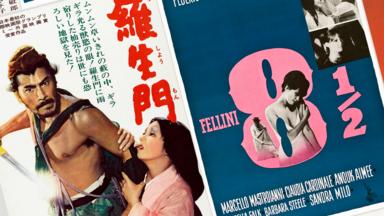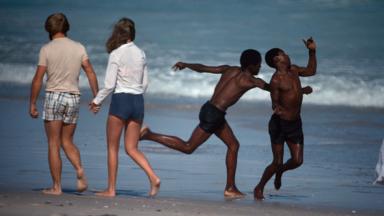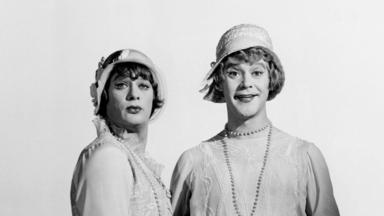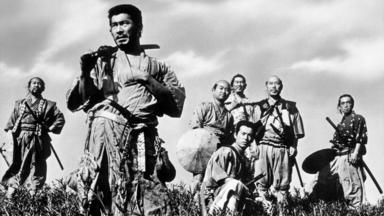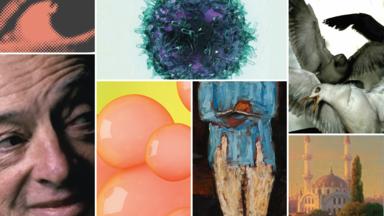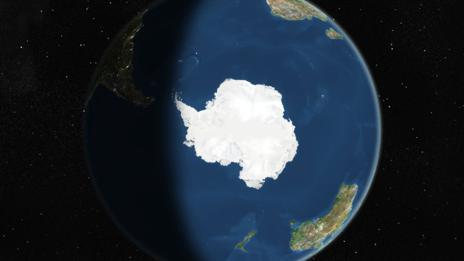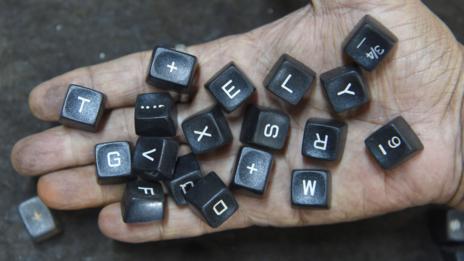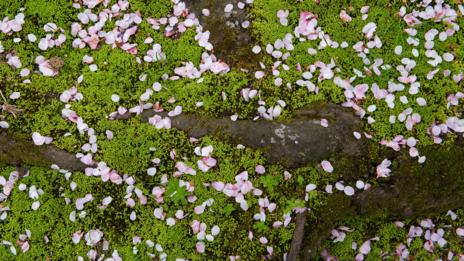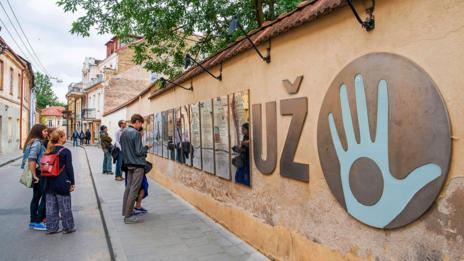BBC Culture polled 209 critics in 43 countries to find the best in world cinema – here’s the top 100.
Three years ago, BBC Culture ran its first major critics’ poll, to find the 100 greatest American films. Two further polls looked for the best films of the 21st Century and the greatest comedies ever made – and those also ended up with films from the US in the top spot.
This year, we felt it was time to direct the spotlight away from Hollywood and celebrate the best cinema from around the world. We asked critics to vote for their favourite movies made primarily in a language other than English. The result is BBC Culture’s 100 greatest foreign-language films.
Read more about BBC Culture’s 100 greatest foreign-language films:
- What the critics had to say about the top 25
- The full list of critics – and how they voted
- Why Seven Samurai is number one
- Foreign-language masterpieces you may not know
From the perspective of an English-language website, that’s an accurate description – but equally, as an internationally-focused one, we’re happy to acknowledge that, depending on who you are, many of these films won’t be in a language that’s foreign to you.
And as the poll exists to salute the extraordinary diversity and richness of films from all around the world, we wanted to ensure that its voters were from all around the world, too. The 209 critics who took part are from 43 different countries and speak a total of 41 languages – a range that sets our poll apart from any other.
The result: 100 films from 67 different directors, from 24 countries, and in 19 languages. French can claim to be the international language of acclaimed cinema: 27 of the highest-rated films were in French, followed by 12 in Mandarin, and 11 each in Italian and Japanese. At the other end of the scale, several languages were represented by just one film, such as Belarusian (Come and See), Romanian (4 Months, 3 Weeks and 2 Days), and Wolof (Touki Bouki).
If there’s anything disappointing about the final list, it’s the paucity of films directed or co-directed by women. There are just four out of 100. But we made sure to contact as many female critics as male ones; of those who responded, 94 (45 per cent) were women.
One statistic we noted was that a quarter of the films on our list were East Asian: that is, 25 of them were made in Japan (11), China (6), Taiwan (4), Hong Kong (3) or South Korea (1). And the winning film, Seven Samurai, by the Japanese director Akira Kurosawa, was loved by critics everywhere – everywhere, that is, except for Japan. The six Japanese critics who voted didn’t go for a single Kurosawa film between them.
But it’s clear that culture isn’t bound by borders, and language needn’t be a barrier to enjoying great film-making. While the cinema of an individual nation is inevitably tied to its unique identity and history, the language of film is universal.
One more thing: the purpose of every BBC Culture film poll has always been to generate debate as well as encourage discovery. And we are aware that no list can be either definitive or please everyone – so get in touch using the hashtag #WorldFilm100 and let us know what’s missing. And look out for more BBC Culture features on the greatest in world cinema in the weeks to come.
100. Landscape in the Mist (Theo Angelopoulos, 1988)
99. Ashes and Diamonds (Andrzej Wajda, 1958)
98. In the Heat of the Sun (Jiang Wen, 1994)
97. Taste of Cherry (Abbas Kiarostami, 1997)
96. Shoah (Claude Lanzmann, 1985)
95. Floating Clouds (Mikio Naruse, 1955)
94. Where Is the Friend's Home? (Abbas Kiarostami, 1987)
93. Raise the Red Lantern (Zhang Yimou, 1991)
92. Scenes from a Marriage (Ingmar Bergman, 1973)
91. Rififi (Jules Dassin, 1955)
90. Hiroshima Mon Amour (Alain Resnais, 1959)
89. Wild Strawberries (Ingmar Bergman, 1957)
88. The Story of the Last Chrysanthemum (Kenji Mizoguchi, 1939)
87. The Nights of Cabiria (Federico Fellini, 1957)
86. La Jetée (Chris Marker, 1962)
85. Umberto D (Vittorio de Sica, 1952)
84. The Discreet Charm of the Bourgeoisie (Luis Buñuel, 1972)
83. La Strada (Federico Fellini, 1954)
82. Amélie (Jean-Pierre Jeunet, 2001)
81. Celine and Julie go Boating (Jacques Rivette, 1974)
80. The Young and the Damned (Luis Buñuel, 1950)
79. Ran (Akira Kurosawa, 1985)
78. Crouching Tiger, Hidden Dragon (Ang Lee, 2000)
77. The Conformist (Bernardo Bertolucci, 1970)
76. Y Tu Mamá También (Alfonso Cuarón, 2001)
75. Belle de Jour (Luis Buñuel, 1967)
74. Pierrot Le Fou (Jean-Luc Godard, 1965)
73. Man with a Movie Camera (Dziga Vertov, 1929)
72. Ikiru (Akira Kurosawa, 1952)
71. Happy Together (Wong Kar-wai, 1997)
70. L’Eclisse (Michelangelo Antonioni, 1962)
69. Amour (Michael Haneke, 2012)
68. Ugetsu (Kenji Mizoguchi, 1953)
67. The Exterminating Angel (Luis Buñuel, 1962)
66. Ali: Fear Eats the Soul (Rainer Werner Fassbinder, 1973)
65. Ordet (Carl Theodor Dreyer, 1955)
64. Three Colours: Blue (Krzysztof Kieślowski, 1993)
63. Spring in a Small Town (Fei Mu, 1948)
62. Touki Bouki (Djibril Diop Mambéty, 1973)
61. Sansho the Bailiff (Kenji Mizoguchi, 1954)
60. Contempt (Jean-Luc Godard, 1963)
59. Come and See (Elem Klimov, 1985)
58. The Earrings of Madame de… (Max Ophüls, 1953)
57. Solaris (Andrei Tarkovsky, 1972)
56. Chungking Express (Wong Kar-wai, 1994)
55. Jules and Jim (François Truffaut, 1962)
54. Eat Drink Man Woman (Ang Lee, 1994)
53. Late Spring (Yasujirô Ozu, 1949)
52. Au Hasard Balthazar (Robert Bresson, 1966)
51. The Umbrellas of Cherbourg (Jacques Demy, 1964)
50. L’Atalante (Jean Vigo, 1934)
49. Stalker (Andrei Tarkovsky, 1979)
48. Viridiana (Luis Buñuel, 1961)
47. 4 Months, 3 Weeks and 2 Days (Cristian Mungiu, 2007)
46. Children of Paradise (Marcel Carné, 1945)
45. L’Avventura (Michelangelo Antonioni, 1960)
44. Cleo from 5 to 7 (Agnès Varda, 1962)
43. Beau Travail (Claire Denis, 1999)
42. City of God (Fernando Meirelles, Kátia Lund, 2002)
41. To Live (Zhang Yimou, 1994)
40. Andrei Rublev (Andrei Tarkovsky, 1966)
39. Close-Up (Abbas Kiarostami, 1990)
38. A Brighter Summer Day (Edward Yang, 1991)
37. Spirited Away (Hayao Miyazaki, 2001)
36. La Grande Illusion (Jean Renoir, 1937)
35. The Leopard (Luchino Visconti, 1963)
34. Wings of Desire (Wim Wenders, 1987)
33. Playtime (Jacques Tati, 1967)
32. All About My Mother (Pedro Almodóvar, 1999)
31. The Lives of Others (Florian Henckel von Donnersmarck, 2006)
30. The Seventh Seal (Ingmar Bergman, 1957)
29. Oldboy (Park Chan-wook, 2003)
28. Fanny and Alexander (Ingmar Bergman, 1982)
27. The Spirit of the Beehive (Victor Erice, 1973)
26. Cinema Paradiso (Giuseppe Tornatore, 1988)
25. Yi Yi (Edward Yang, 2000)
24. Battleship Potemkin (Sergei M Eisenstein, 1925)
23. The Passion of Joan of Arc (Carl Theodor Dreyer, 1928)
22. Pan’s Labyrinth (Guillermo del Toro, 2006)
21. A Separation (Asghar Farhadi, 2011)
20. The Mirror (Andrei Tarkovsky, 1974)
19. The Battle of Algiers (Gillo Pontecorvo, 1966)
18. A City of Sadness (Hou Hsiao-hsien, 1989)
17. Aguirre, the Wrath of God (Werner Herzog, 1972)
16. Metropolis (Fritz Lang, 1927)
15. Pather Panchali (Satyajit Ray, 1955)
14. Jeanne Dielman, 23 Commerce Quay, 1080 Brussels (Chantal Akerman, 1975)
13. M (Fritz Lang, 1931)
12. Farewell My Concubine (Chen Kaige, 1993)
11. Breathless (Jean-Luc Godard, 1960)
10. La Dolce Vita (Federico Fellini, 1960)
9. In the Mood for Love (Wong Kar-wai, 2000)
8. The 400 Blows (François Truffaut, 1959)
7. 8 1/2 (Federico Fellini, 1963)
6. Persona (Ingmar Bergman, 1966)
5. The Rules of the Game (Jean Renoir, 1939)
4. Rashomon (Akira Kurosawa, 1950)
3. Tokyo Story (Yasujirô Ozu, 1953)
2. Bicycle Thieves (Vittorio de Sica, 1948)
1. Seven Samurai (Akira Kurosawa, 1954)
Read more about BBC Culture’s 100 greatest foreign-language films:
- What the critics had to say about the top 25
- The full list of critics – and how they voted
- Why Seven Samurai is number one
- Foreign-language masterpieces you may not know
How many of the films have you seen? Let us know using the hashtag #WorldFilm100 on our Facebook page or message us on Twitter.
If you would like to comment on this story or anything else you have seen on BBC Culture, head over to our Facebook page or message us on Twitter.
And if you liked this story, sign up for the weekly bbc.com features newsletter, called “If You Only Read 6 Things This Week”. A handpicked selection of stories from BBC Future, Culture, Capital and Travel, delivered to your inbox every Friday.
Best of Culture
-
-
-
Billy Wilder’s film is the critics’ pick for the best comedy ever made

